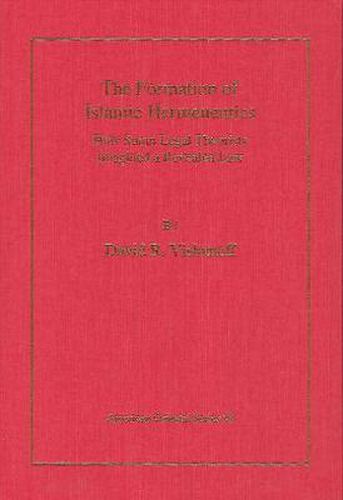Readings Newsletter
Become a Readings Member to make your shopping experience even easier.
Sign in or sign up for free!
You’re not far away from qualifying for FREE standard shipping within Australia
You’ve qualified for FREE standard shipping within Australia
The cart is loading…






This book is the first historical analysis of those parts of Islamic legal theory that deal with the language of revelation, and a milestone in reconstructing the missing history of legal theory in the ninth and tenth centuries. It offers a fresh interpretation of al-Shafii’s seminal thought, and traces the development of four different responses to his hermeneutic, culminating in the works of Ibn Hazm, Abd al-Jabbar, al-Baqillani, and Abu Yala Ibn al-Farra. It reveals startling connections between rationalism and literalism, and documents how the remarkable diversity that characterized even traditionalist schools of law was eclipsed in the fifth/eleventh century by a pragmatic hermeneutic that gave jurists the interpretive power and flexibility they needed to claim revealed status for their legal doctrines. More than a detailed and richly documented history, this book opens new avenues for the comparative study of legal and hermeneutical theories, and offers new insights into unstated premises that shape and restrict Muslim legal discourse today. The book is of interest to all occupied with classical Islam, the development of Islamic law, and comparative hermeneutical research.
$9.00 standard shipping within Australia
FREE standard shipping within Australia for orders over $100.00
Express & International shipping calculated at checkout
This book is the first historical analysis of those parts of Islamic legal theory that deal with the language of revelation, and a milestone in reconstructing the missing history of legal theory in the ninth and tenth centuries. It offers a fresh interpretation of al-Shafii’s seminal thought, and traces the development of four different responses to his hermeneutic, culminating in the works of Ibn Hazm, Abd al-Jabbar, al-Baqillani, and Abu Yala Ibn al-Farra. It reveals startling connections between rationalism and literalism, and documents how the remarkable diversity that characterized even traditionalist schools of law was eclipsed in the fifth/eleventh century by a pragmatic hermeneutic that gave jurists the interpretive power and flexibility they needed to claim revealed status for their legal doctrines. More than a detailed and richly documented history, this book opens new avenues for the comparative study of legal and hermeneutical theories, and offers new insights into unstated premises that shape and restrict Muslim legal discourse today. The book is of interest to all occupied with classical Islam, the development of Islamic law, and comparative hermeneutical research.